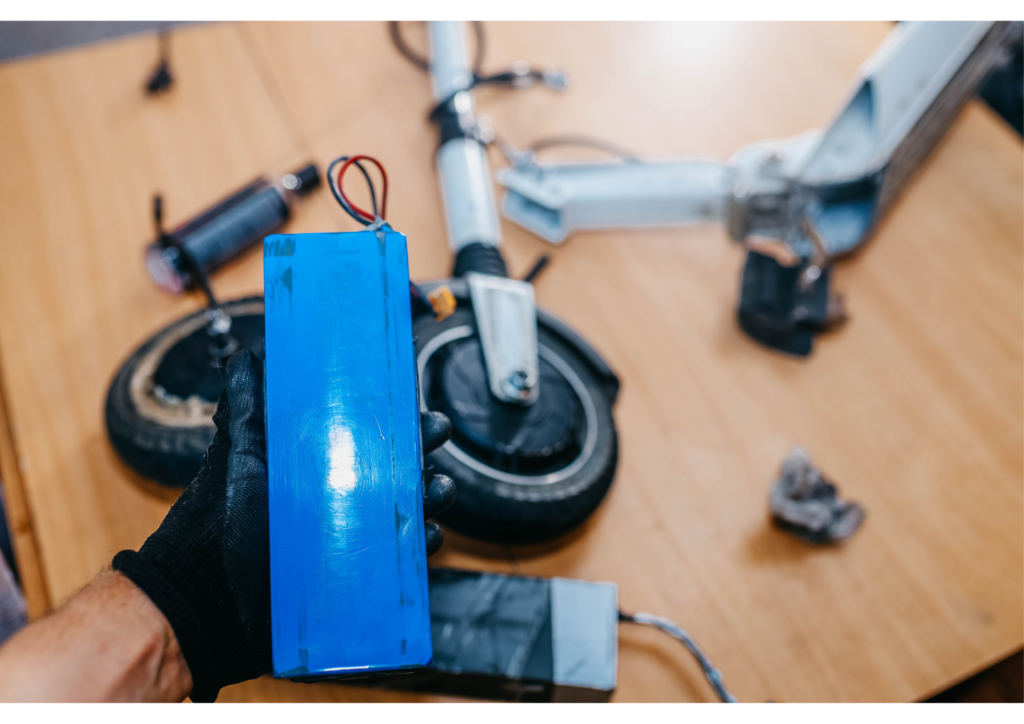
In the growing world of urban mobility, electric scooters have emerged as a popular and eco-friendly mode of transportation. Central to their design and usability are lithium-ion batteries, a fascinating technology that deserves a closer look. These compact powerhouse cells provide significant advantages in terms of energy efficiency, recyclability, and environmental impact. Uncovering the eco-friendly technology behind e-scooters leads us to explore the unique attributes and benefits of lithium-ion batteries that have propelled the rise of electric scooters as a sustainable solution for urban mobility.
The Evolution of Lithium-ion Batteries
Lithium-ion batteries have become the go-to energy storage solution for e-scooters and a wide array of portable electronic devices due to their high energy density, long lifespan, and light weight. The invention of lithium-ion batteries can be credited to Stanley Whittingham, who was awarded the Nobel Prize in Chemistry in 2019 for his contributions to developing these batteries with high potential for sustainability. Their evolution has seen significant advancements in safety, performance, and affordability, making them a practical choice for electric scooter manufacturers. As a power source, they have also played a crucial role in the push towards sustainable urban transport.
Advantages of Lithium-ion Batteries for E-Scooters
The use of lithium-ion batteries in e-scooters offers several key benefits, beginning with their lightweight design. Compared to traditional lead-acid batteries, lithium-ion batteries are significantly lighter, which greatly impacts the e-scooter’s overall weight and allows for more efficient energy utilization. Moreover, they provide a higher energy density, allowing e-scooters to travel longer distances on a single charge. Additionally, these batteries exhibit low self-discharge rates, enabling e-scooters to retain their charge for longer periods, even when not in use.
Eco-Friendly Elements of Lithium-ion Batteries
Lithium-ion batteries are an environmentally friendly option for e-scooters. Their production and use boast lower greenhouse gas emissions compared to traditional internal combustion engine vehicles, contributing to cleaner air quality and reduced carbon footprint. Furthermore, the recyclability of lithium-ion batteries is a significant factor in their environmental friendliness. The recycling process involves separating and reusing valuable materials such as lithium, cobalt, and nickel, minimizing the environmental impact of battery disposal.
Conclusion: Harnessing Sustainable Power: A Lithium-ion Future for E-Scooters
The integration of lithium-ion batteries into e-scooter technology signifies a positive shift towards sustainable urban transport. These advanced batteries offer superior energy efficiency, prolonged lifespan, and minimal environmental impact, aligning with the global initiative for green mobility. As cities seek to reduce congestion and emissions, promoting the adoption of eco-friendly electric scooters powered by lithium-ion batteries holds tremendous promise. Embracing this forward-thinking energy technology not only enhances the performance of e-scooters, but also supports the creation of a cleaner, healthier urban environment.

I agree, electric scooters powered by lithium-ion batteries are becoming increasingly more popular and convenient in Singapore. Hopefully, this trend will spread to other cities too.
We’re glad you agree! At Eko Life Malaysia, we’re also committed to promoting sustainable urban mobility. Our e-scooters, powered by lithium-ion batteries, are designed to be efficient, eco-friendly, and convenient for daily commutes. We’re excited to see the trend you mentioned gaining momentum and hope it continues to shape a greener future for cities like Singapore and Malaysia. Would you like to learn more about our products and services? Please feel free to contact us at [email protected] or +60 3-7890 3042.
I’m loving how environmentally friendly these lithium-ion batteries are! What are some of the future plans for upgrading the e-scooters in Malaysia?
Thank you for your enthusiasm, Ryan! We appreciate your interest in Eko Life Malaysia’s e-scooters. Our team is continuously working on upgrading our e-scooters with the latest lithium-ion battery technology. In the near future, we plan to introduce new models with improved battery life, range, and charging efficiency. Additionally, we are exploring eco-friendly materials for our e-scooters’ production and are committed to reducing waste in our operations. Please stay tuned for our upcoming announcements and feel free to contact us at [email protected] or +60 3-7890 3042 for more information.
It’s good to see lithium-ion batteries being used in e-scooters. Have there been any studies on how this impacts urban planning and traffic management in Kuala Lumpur?
Thank you for sharing your thoughts on lithium-ion batteries in e-scooters, Alice! Although there may not be extensive studies specifically focused on Kuala Lumpur, we’ve seen improvements in traffic management and urban planning in cities that have adopted electric vehicles and sustainable transportation methods. For instance, cities like Copenhagen and Amsterdam have successfully integrated e-scooters into their transportation systems, reducing congestion and carbon emissions. We’d be happy to discuss this further and see if there are any initiatives in Kuala Lumpur that we can share with you. Please feel free to reach out to us at [email protected] or call us at +60 3-7890 3042 for more information.